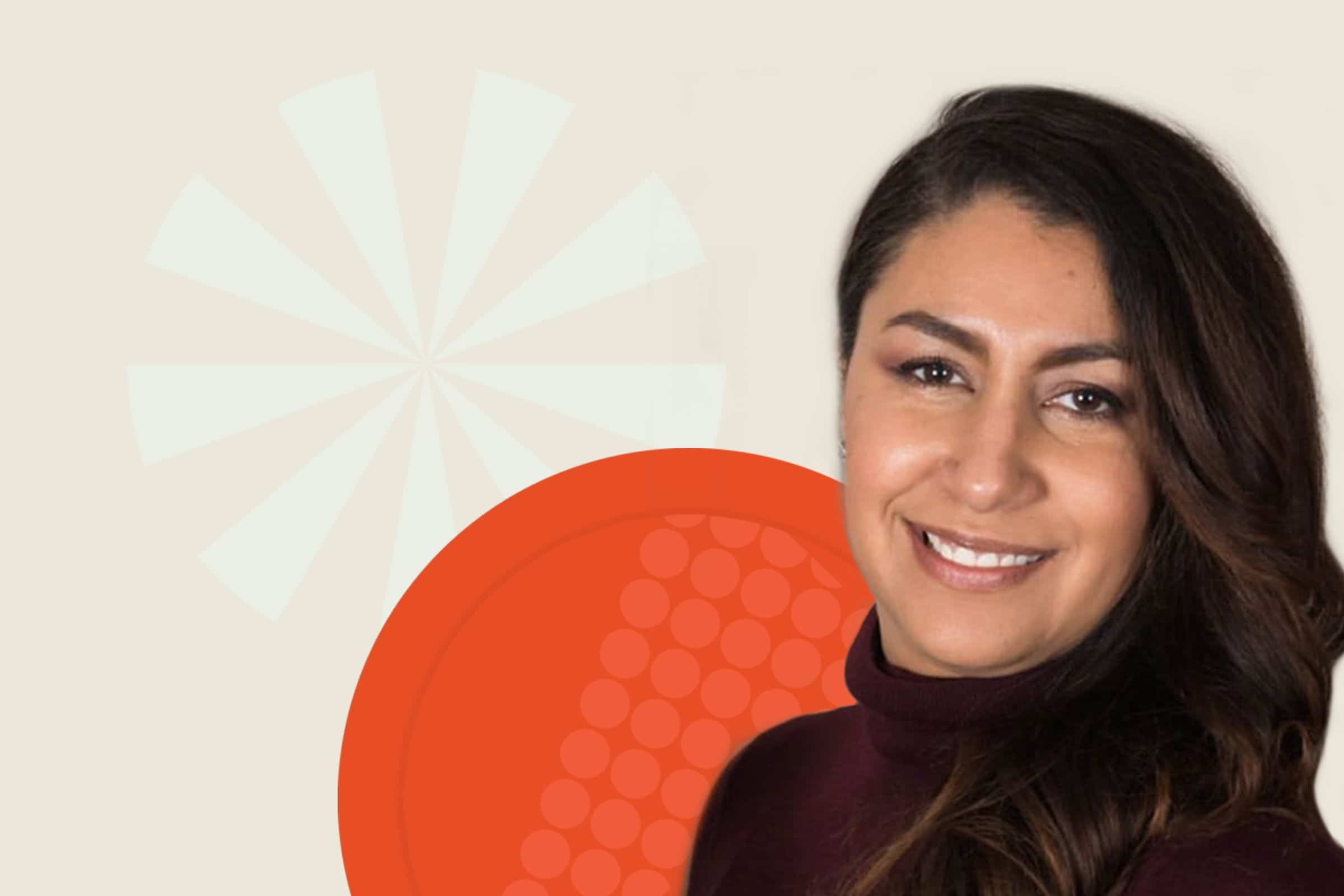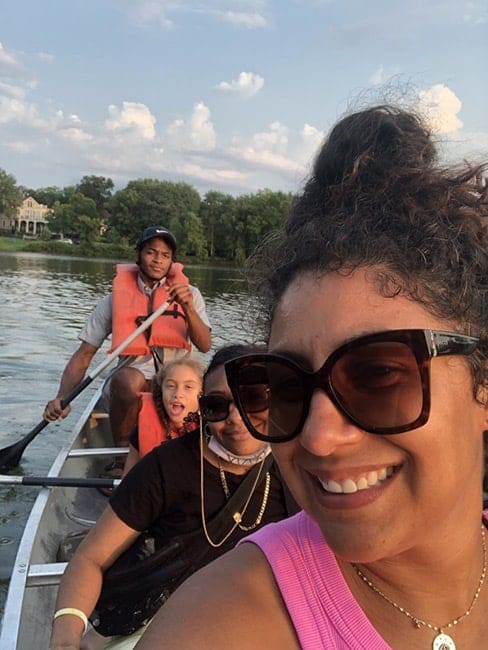Meet JP Alumni Fellow Christine Smith
Christine Smith is a 2006 graduate of Jeremiah Program’s Minneapolis campus. A mother of two, she serves as the Health Equity and Tribal Grants Supervisor for the Minnesota Department of Health.
Describe your experience with Jeremiah Program.
When I first started, I was young. I was in my early twenties and had suddenly found myself divorced. Prior to that, I was the homemaker. I had dropped out of high school, and I went to get my GED before my first daughter was born. I didn’t have any education, any experience.
And, so, when I became a single parent … I couldn’t make enough money supporting [my kids] as a general manager in retail. I couldn’t be available during those hours. I literally had no support. My college decision was made around necessity, and so I went into the Jeremiah program. … I moved in in 2002.
After I took my certified nursing classes and worked at a nursing home, I realized that was not my calling. I needed to stay in school to be in Jeremiah, and I knew I needed to do that for my own ability to support my kids. So, I started taking classes and was like, “I’ll get a liberal arts degree and we’ll figure it out.”
I was doing that, and I was working part-time … and the (Minnesota Family Investment Program) system was like, “You need to get a full-time job.” At the time, the laws for the Minnesota welfare program, which we call MFIP, only allowed you to go to school part-time for 24 months, and you still had to work.
I had a child under six. There’s no way I could have gone to school part-time or full-time and worked within daycare hours, 6:00 AM to 6:00 PM. So, all the odds were stacked against me. I had no idea what I was going to do. It was nuts. But I’m a very persistent person. I don’t give up easily. And I have a huge vat of faith that has helped me as well.
So, I found a full-time job, and my AMFIP counselor was like, “You’re really passionate about people. You love helping people. You know this program inside and out. You should be an AMFIB counselor.” They had a job opening at the agency my case was at; I got the job. And because I was a counselor, I had to go to a community college and get certified as a career development facilitator, which was a nine-month course. And, so, I started applying for some low-income housing, got the job, and signed up for those classes. It worked out, and I was able to stay at Jeremiah until I found other housing and got my job and started my career working as a counselor for the Minnesota Family Investment Program.
How did Jeremiah Program influence you and the changes you have made?
I dropped out of school when I was 15 largely because of insecurities, being a Brown girl in school and being super nerdy. I had some trauma and some household stuff that I was dealing with at home and that made it even worse, and some environmental stuff. I was getting bullied really bad. I was one of the only mixed kids in my school. I had to switch schools five times and finally, I just dropped out. Dealing with violence from home to school just got to be too much.
To be able to go back and go to college, surrounded by all these women that were on the same journey! They had come from a similar background, but they were like, “You know what? I’m going to sacrifice. I’m going to do whatever I need to do for me and my kids. And we’re going to break these cycles.” It was just a phenomenal experience. That was the first time I ever felt safe in my life. And I didn’t know that I didn’t feel safe before that, because you’re in survival mode. I think I spent the first year just crying, just looking around me, looking at my kids and my furniture, and the fact that I was in my home and I was safe. To have that space, that mental and physical space, allowed me to grow tremendously.
I still have some hurdles, now, don’t get me wrong. I’ve had stuff that’s happened along the way. But I feel like I got some resiliency skills. Having so much love and kindness and generosity and community poured into me equipped me with, “You can do it! You’re going to do it.
You’ve made it through this. You’ve made it through that. There’s nothing that you can’t accomplish!” I still struggle, but that’s the core of me. When I get pushed to the core, it’s like, “Okay, you got this.” I may have already had that in me, but having an environment like Jeremiah helped to draw that out.
How did you become involved in the alumni program?
I’ve always stayed connected to the Jeremiah Program. I used to try to meet with Gloria Perez, the former CEO, at least once a year or every six months whenever I could. And then I had a little more space and time after I finished my master’s program and was like, “Let me volunteer for life skills.” I was always available for speaking, but I wanted to do something more with the women. So, I started teaching the one of the life skills classes. In my master’s degree, I studied family life education, so I was really passionate about pulling together all of my experiences and putting it into one package for women that is a culturally-responsive and trauma-responsive life skills program. That’s a gap that I felt like was there; the skills were good, but meeting women where they’re at as far as their emotional wellbeing and understanding that a lot of women come from trauma backgrounds. That’s at the root core of some of the reasons that led them into the Jeremiah Program.
What is your vision for the alumni fellowship?
I want hope to stay connected and help with that in whatever way possible. This opportunity was really cool because it brought me back into my community. I’m actually really close friends with the ladies that I was in the program with; to this day we talk regularly. But I don’t know any of the other women that I didn’t go with. So now we’re in the [Alumni Fellowship Program] together, and I got to meet some of the ladies yesterday. These women are superheroes—people who have the type of backgrounds that some of us do and soar past every statistic that was set for you and your children. You don’t find that every day.
Some of us are moving into national leadership roles. We can really provide some good insight into helping build a program, making it more robust, finding opportunities where there have been barriers. I helped write the Minnesota Family Investment Program manual. I trained that entire welfare system. We need to equip these women on how to navigate the system. That should be part of the orientation process so they understand and don’t have all the barriers that I did. I know all the loopholes. How do we utilize that in a way that’s not just, “Come tell your story to these rich people that want to donate,” but “How can we use all the stuff you know to help these women?” That’s what I’m hoping.
This interview has been lightly edited for length and clarity.
Learn More About Our communities
Learn more about the JP Alumni Fellowship Program.
Back to JP Stories


